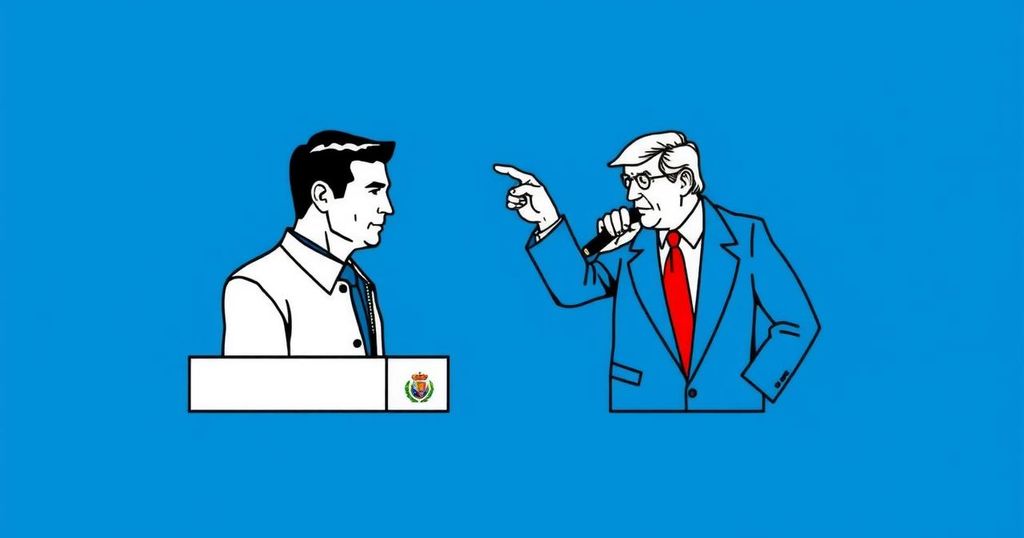Uruguay is conducting a closely fought presidential run-off between centre-left candidate Yamandu Orsi and conservative Alvaro Delgado. The race reflects a stable political environment with poll results indicating a tight contest. Both candidates seek to capture a share of voters from unaligned parties to secure victory. The election serves as a litmus test for political change amidst economic stability, in a year marked by numerous elections worldwide.
Uruguay is set to hold a closely contested presidential run-off between two moderate candidates: opposition centre-left candidate Yamandu Orsi and continuity conservative Alvaro Delgado. With a population of 3.4 million, the nation is experiencing a second round of elections following a productive year of voting. Polls indicate that Orsi, who has proposed a ‘modern left’ approach, and Delgado, who capitalizes on the existing government’s popularity, are separated by a narrow margin of votes.
On one hand, Orsi, representing the Broad Front, aims to maintain political stability after securing 43.9% of the votes in October, while Delgado of the National Party, who obtained 26.8% in the first round, benefits from alliances with the Colorado Party. With ballot stations opening on Sunday, the nation’s political scene showcases a reassuring lack of severe polarization, unlike the right-left divides common in other South American countries such as Argentina and Brazil. New pledges have been scarce in the final campaigning weeks, leading analysts to question whether the upcoming election results will reflect a desire for political change among the Uruguayan populace.
Uruguay, known for its political stability and progressive policies, is positioned uniquely among South American nations. Its recent history of moderate governance has created a political landscape less characterized by extreme partisan strife. The current election cycle includes a backdrop of global trends where incumbents have struggled against adverse economic circumstances. In this context, the outcome of the election will serve as an indicator of the electorate’s mood and their stance toward continuity versus change in governance.
In conclusion, the Uruguayan presidential run-off between Yamandu Orsi and Alvaro Delgado highlights a critical moment for the nation. With both candidates displaying moderate approaches and significant political overlap, the outcome will reflect citizens’ sentiments towards their current government and their willingness to embrace change amidst economic pressures. The close polling results indicate that this election may set a precedent in contrasting global electoral trends.
Original Source: www.begadistrictnews.com.au






